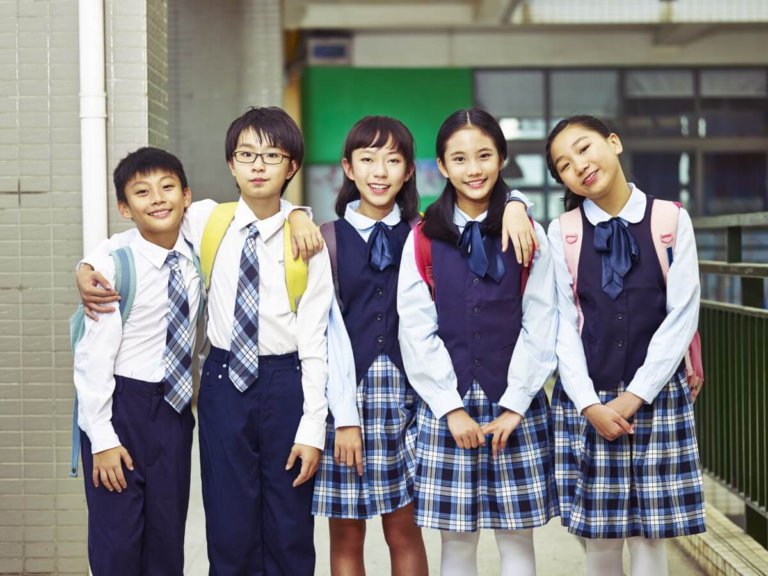
Amidst an explosion of British-based private and international schools in China, the government is clamping down on their selection processes.
Accusing schools of “creaming off” the best of students, Chinese education providers will soon be required to pick students for admission based on a lottery system.
Zheng Fuzhi, China’s Deputy Education Minister, announced the new guidelines as part of China’s plans to improve the quality of public education.
According to SixthOne, “Both public and private schools in the compulsory education system should start their enrollment processes at the same time, and private schools should select students through a random computerized system if applications exceed quotas.”
Richard Gaskell, Director of International Education Analysts at ISC Research, reportedly said at the Headmasters’ and Headmistresses’ Conference of leading fee-paying schools in the UK that “There is a backlash against the rapid increase in private schools in China, particularly from the big public schools where it’s perceived that they have been simply creaming off the best kids.”
He also advised that international schools should put their expansion plans on hold until the full effect of the changes next spring can be seen.
However, Gaskell said that international schools should not be deterred from opening up new branches in China as there is still a huge demand.
He said, “There is a deep desire amongst the wealthy, middle class and young Chinese parents for a Western style of education.”
British-based private schools in China are booming
British private schools now teach 10,500 pupils at 47 campuses in China https://t.co/zqyIo0YrcU
— Ed West (@edwest) October 2, 2019
In recent years, the international schools market has seen exponential growth, particularly from British-based schools.
This happened after regulations in the country were relaxed and Chinese children were allowed to enrol in foreign-owned schools.
More and more parents from the rising middle-class in China intend to send their children overseas for higher education; therefore, they want their kids to receive a Western education.
Before that, international schools were only attended by expats and children of foreigners in the country. Seeing a huge potential new market, several British-owned private and international schools began to crop up.
It was reported early this year that there will be approximately 46 British-based schools in China by the end of 2019, more than double that of two years ago.
According to Forbes, “Some of the most prestigious private schools have sought to capitalise on their brand by opening branches in China in recent years.
“Wellington College has five schools in China – two each in Shanghai and Hangzhou and one in Tianjin – while Dulwich College has four – two in Shanghai and one each Beijing and Suzhou.
“A record 14 British international schools have opened or are due to open in China this year, including outposts of the King’s School, Canterbury, and Shrewsbury School, which counts Charles Darwin among its alumni.”
Not all are in favour of the new lottery system
A new education reform in China requires all private schools to adopt a lottery system for student admissions, much to the dismay of many parents.https://t.co/3bxhCfCTqu
— Sixth Tone (@SixthTone) July 11, 2019
Parents in China aren’t happy about these new guidelines, and are concerned that their children will not get a place due to the high number of applications to these types of schools.
Cheng Lina, a parent who planned to enrol her 5-year-old at a private primary school next year, said, “A lottery system means that, no matter how well you prepare your child, their enrollment will be based simply on luck — that’s not a very fair practice. With the policy change, we’re now frozen in place.”
However, some parents are in favour, believing it would put less pressure on their children to gain acceptance to these schools.
According to SixthOne, “Qin Yue, another Shanghai mother, said the new policy would free parents from spending on costly and often crammed prep institutes that prepare children for interviews and tests at private schools. She says the techniques employed by such institutes can be harsh.”
Qin Yue said that previously, she wouldn’t have considered putting her daughter in these types of prep schools but she couldn’t avoid it as it was the norm.
Education policy expert Xiong Bingqi told SixthOne that the new lottery system is not a rational approach, and that it infringes on families’ rights to choose an educational system for their kids.
He also said that it might lead to imbalances in the system, such as parents offering bribes under-the-table to get their children into these schools.
“From the perspective of the compulsory education law, which emphasizes that admission shouldn’t be based on tests, this policy holds up.
“But realistically, families should be able to choose a school, and private schools should also have the right to make their own choices. A fundamental solution is to advance the balance of educational resources.”







